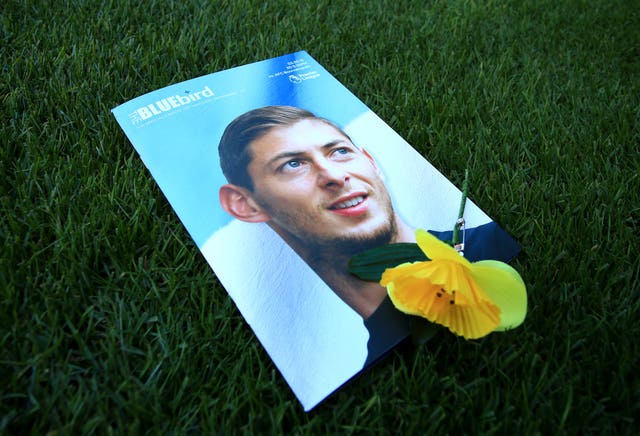The plane crash that killed footballer Emiliano Sala was caused by the pilot losing control while attempting to avoid bad weather, accident investigators said.
A final report by the Air Accidents Investigation Branch (AAIB) concluded that the single-engine Piper Malibu aircraft suffered an in-flight break up while being flown too fast for its design limits.
It added that pilot David Ibbotson, 59, was probably affected by carbon monoxide poisoning.
Investigators found that a contributory factor in the crash was Mr Ibbotson having no training in night flying and a lack of recent practice in relying only on cockpit instruments to control a plane.

Argentinian striker Sala, 28, signed for Cardiff City from French club Nantes on January 19 2019 for £15 million.
Mr Ibbotson flew him from Cardiff to Nantes so he could say goodbye to his former team-mates later that day, before conducting the fatal return flight two days later when the plane plunged into the Channel.
Sala’s body was recovered but Mr Ibbotson has not been found.
Neither Mr Ibbotson nor the plane was licensed for the flight to operate commercially but evidence showed he was to be paid a fee, the AAIB said.
Unlicensed charter flight operations – known as grey charters – generally incur lower operating costs.
Former football agent Willie McKay has said he paid for the fatal flight but did not choose the pilot or the plane.
He has explained he was helping his son Mark, who was acting for Nantes, to complete the transfer.
Alison Campbell, senior inspector for operations, said it was a dark night with “little or no” visible horizon.
“There was poor weather in the area, and from his radio calls, it was clear the pilot needed to manoeuvre to avoid it,” she explained.
Following a descent of thousands of feet in a matter of seconds, the pilot attempted an “abrupt nose-up” manoeuvre.
This was conducted at a speed far in excess of the design limits of the plane, causing it to break-up.
Investigators concluded that the aircraft entered the Channel upside down, and the impact was “not survivable”.
The AAIB also revealed that the pilot informed a number of individuals about four potential problems with the aircraft that had occurred during the outbound flight from Cardiff.
This included a “bang”, although its cause is unknown and it could not be determined if it was a factor in the crash.
In a statement, Cardiff said they welcomed the publication of the report, calling it “an important step in understanding the full facts surrounding this tragedy”.
The club added they hope the questions the report raises will be addressed during the inquest, which is due to recommence next week.
The statement concludes: “The report also highlights a number of challenges the regulating bodies face in stopping illegal grey charter flights, the widespread use of which in the football industry and more widely is placing countless lives at risk.
“We are encouraged to read that the CAA (Civil Aviation Authority) is determined to tackle illegal activities by pursuing those involved. It is a practice which must be stopped and we hope the industry will be supported in order to prevent this tragedy ever happening again.”


